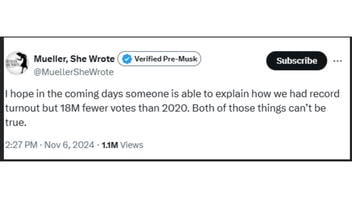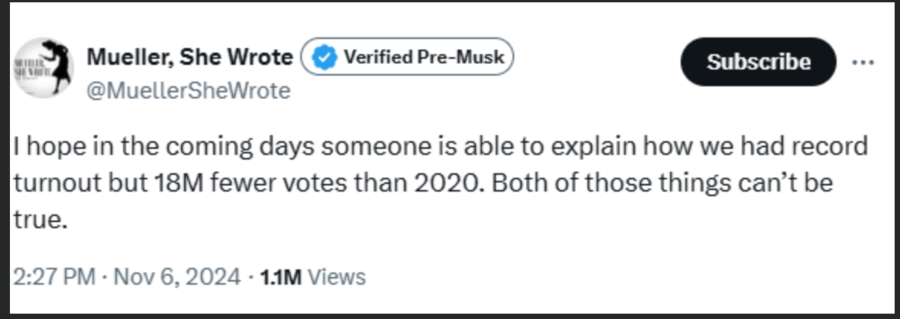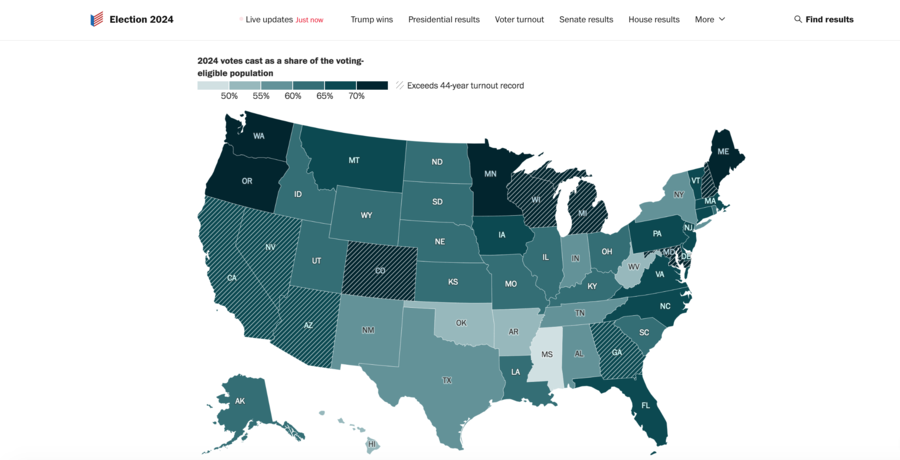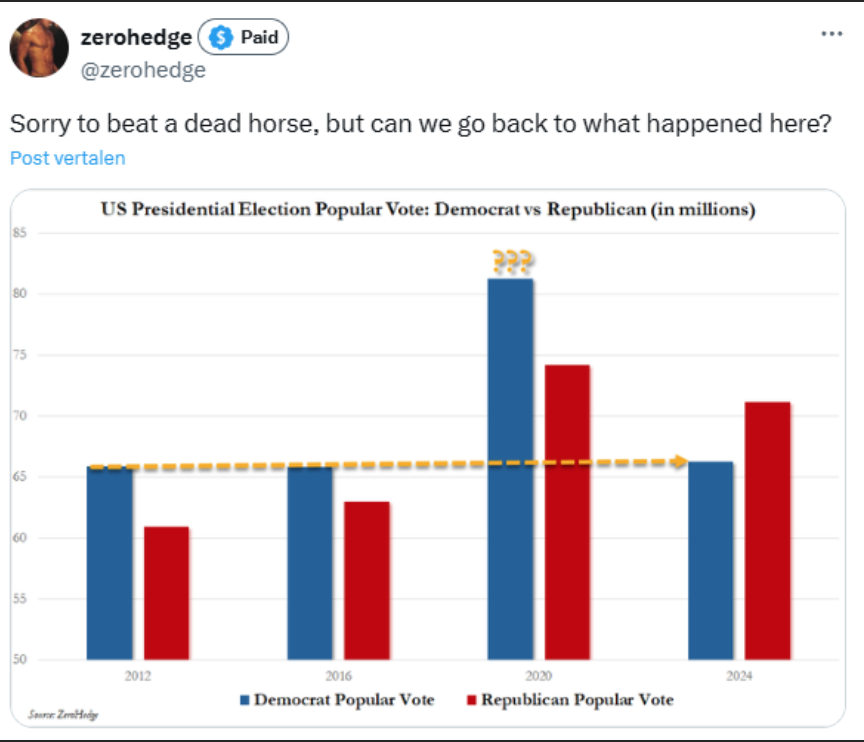Fact Check: Post Saying ’18M Fewer Votes Than 2020′ May NOT Prove True — Could Be Weeks Before Nationwide Total Is Known

Were there 18 million fewer votes in 2024 versus the election numbers from 2020, disproving reports of record turnout or implying cheating in vote totals? No, that’s not true: As of November 7, 2024, final vote numbers had not been reported in every state in the country. An election expert told Lead Stories that count would take “weeks to finalize” and there was “nothing mysterious or sinister” about turnout potentially being lower this year. The expert also noted the 2020 presidential election “featured the highest turnout of eligible voters in modern history.”
One version of the claim appeared in a post on X on November 6, 2024 (archived here), which said:
I hope in the coming days someone is able to explain how we had record turnout but 18M fewer votes than 2020. Both of those things can’t be true.
This is what the post looked like on X at the time of writing:
(Source: X screenshot taken on Wed Nov 6 18:37:04 2024 UTC)
There were several variations of the claim posted on X that referenced “record turnout” and “record registration.” One post on X (archived here) said:
Right now we are 18 million votes short of the 2020 totals? Where are those votes? There was record new voter registration, record turnout in many areas, people on both sides believed the stakes were higher than ever. By the time it’s all counted we still look maybe 15 million…
— TrumpWillLookGreatinOrange #resist🇺🇸🦅 #FBR (@BDNTWLGIO) November 6, 2024
Kyle Kondik, managing editor of Sabato’s Crystal Ball at the University of Virginia Center for Politics (archived here), told Lead Stories via email on November 6, 2024, that the actual number of votes had yet to be determined. Thus the claim of a 12 percent drop was unfounded as of that date:
There are still votes to be counted, and turnout varies from year to year. The 2020 election featured the highest turnout of eligible voters in modern history. There’s nothing mysterious or sinister about turnout potentially being lower this year.
On November 7, 2024, Kondik told Lead Stories via email that it could be weeks before all the votes were actually counted. He noted that “some states, like New York and Pennsylvania, have been going to automatic voter registration, which probably means there are a lot of people who are registered to vote who don’t actually have any intention of voting,” and cited Ballotpedia (archived here) as a reference with that information:
Bottom line: I would not make any assessments about turnout until all the votes are actually counted. This will take weeks to finalize – rely on certified state tallies.
Harris conceded the race to Trump on November 6, 2024, as Yahoo! reported (archived here).
The Washington Post published election results with daily updates, the most recent one occurring at 8:17 p.m. EST on November 7, 2024. It noted (archived here) that the results were close to the record numbers of 2020:
While turnout in this election won’t surpass the record reached in 2020, it will be the second-highest in the past century, above other modern high marks, including in 2008, when Barack Obama defeated John McCain and 1960, when John F. Kennedy defeated Richard M. Nixon.
In the Washington Post article updated as of November 7, 2024, it showed record turnout in 10 states, as this screenshot shows:
(Source: Washington Post website screenshot taken on Thu Nov 7 21:40:02 2024 UTC)
The claim about voting numbers in 2024 being lower than 2020 is confusing to people on both sides of the political aisle. This message posted on X (archived here) used a graph questioning Biden’s large vote count in 2020 compared to 2024 votes, as this screenshot shows:
(Source: X screenshot taken on Wed Nov 6 18:45:11 2024 UTC)
Lead Stories will update this story when final numbers are reported. Other Lead Stories fact checks about the 2024 election can be found here.





